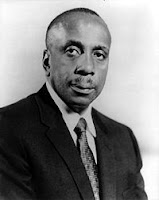 I was in the pool this morning (for context: An indoor pool at the Jewish Community Center with a snow storm blasting my town) and as I was exercising, I was thinking about the new year and related topics. Here are a few thoughts I wanted to share:
I was in the pool this morning (for context: An indoor pool at the Jewish Community Center with a snow storm blasting my town) and as I was exercising, I was thinking about the new year and related topics. Here are a few thoughts I wanted to share:I was struck by the oft-repeated greeting of "Happy New Year" and what we intend for it to mean...what we hope for it to mean...and how we have so little control over any of it! I notice, in the face of everything we are experiencing as a country and as humans, there is a joyful hopefulness around this new year. The alternative is so depressing.
I wonder, what is it that makes the new year the milestone of milestones? That we get a new day every 24 hours is not enough. Or the new week every Sunday or the new month every first. Think about it... we get 365 "Happy New Days" and 52 "Happy New Weeks" and 12 "Happy New Months" and yet we put all of our hopes and plans and energy into one day. What is significant about this day to you? What is it about this day that enables you to pause and see a whole year? What is possible when we fail in our new year resolutions and have the rest of the year to trudge through until we can re-start, renew, re-boot? Or, what is possible when we achieve our resolutions and have the remainder of the year to do...nothing?
I work with people and teams and couples and partnerships. There is a constant need to recalibrate tasks, realign resources, and renew commitment to the goal. Nothing is ever neatly set in stone and then worked toward its achievement. Change occurs daily...often over and over in a day. If coaching is about anything, it is about change management. A marriage vow must be renegotiated, freshened, acknowledged more often than on the wedding anniversary (and certainly more often than milestone anniversaries). A strategic plan must be used daily, not only when measuring a year (or two or three) of activity. A culture of a team or organization must be reconsidered with every personnel addition or subtraction. Change happens!
This year I am going to strive to acknowledge the moment and use it to guide the next moment. I am not at all opposed to looking long term; it's just impossible right now. My commitment to myself is to bring alignment between the Happy New Minute and the Happy New Year. It is not enough to only look from year to year; to do so ignores everything in between. I will strive to build on one minute into three weeks into five months and into one year. Now. Next. Repeat.
Happy New Minute.
Happy New Day.
Happy New Week.
Happy New Month.
Happy New Year.
(And for those of us so hopeful for smart, compassionate leadership in the American government, Happy New Era... one minute at a time...)































 Each time my cell phone rings from the American southwest this picture of my friend, Quiana, appears. I smile. The photo of her and her husband reminds me of the burgers and beers we shared at a brew pub in Minneapolis a couple years ago. Good times.
Each time my cell phone rings from the American southwest this picture of my friend, Quiana, appears. I smile. The photo of her and her husband reminds me of the burgers and beers we shared at a brew pub in Minneapolis a couple years ago. Good times.







